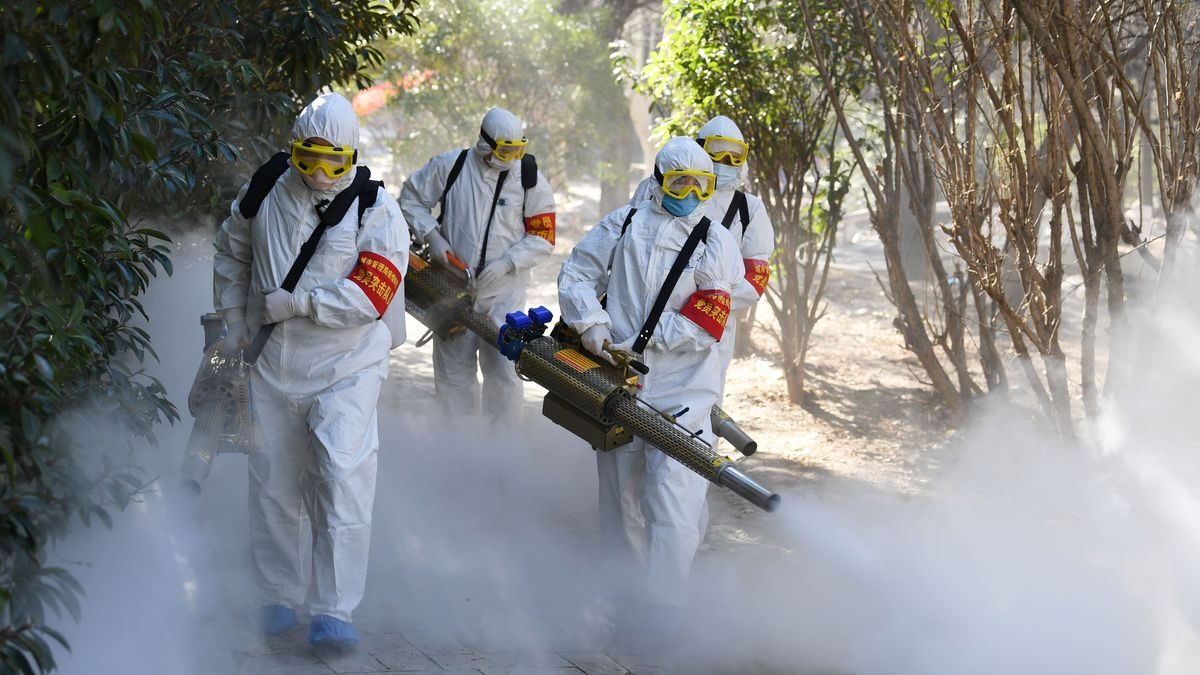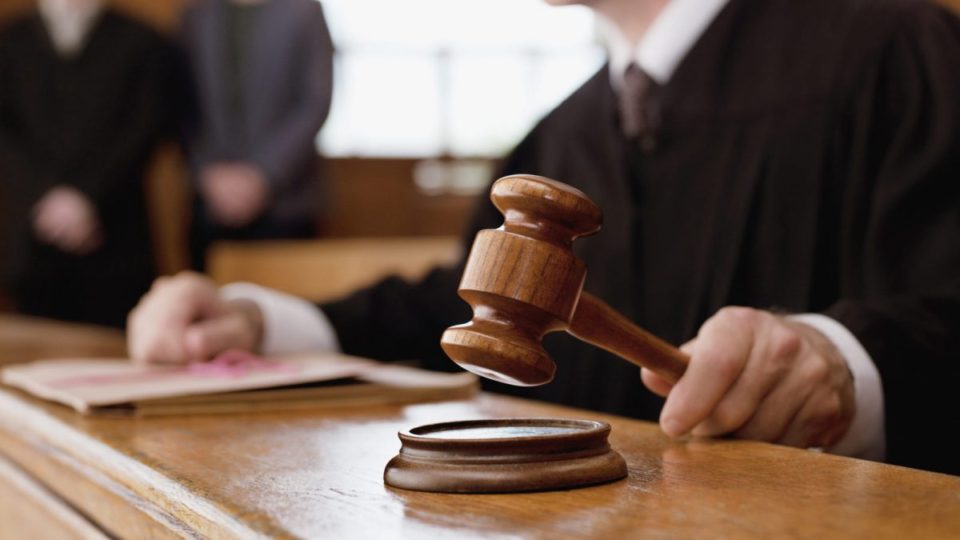- Legal Education and Access Portal
Law to the Rescue: Coronavirus Outbreak, Global Public Health Emergency & Legislative Responses
Introduction
Since the outbreak of novel coronavirus causing Covid-19 pandemic,
a major political debate is focused on the analysis of the global response to
this outbreak within the context of a larger battle between authoritarianism
and democracy.[1] However, far little has been written
and spoken about the importance and availability of actual legal tools that
fundamentally determine a country’s ability to respond to a public health
emergency. This article maintains that, irrespective of the type of governance
a country chooses to adopt, the capacity to respond to a public health
emergency will depend on the presence of laws empowering governments to act
swiftly and efficiently. Making such laws may force countries to limit and
restrict individual freedoms to ensure compliance with stricter health and
safety regulations. It is maintained that this is a uniquely formidable challenge for the world
at large and that what emerges at the other side of it is still too uncertain
to predict.
I.
The Debate: Democracy v. Authoritarianism
Initially when the novel coronavirus took over Wuhan in November 2019, the world harshly criticised the Chinese government. They were criticised for their handling of whistle-blower Dr. Li Wenliang and then downplaying the epidemic in Wuhan. In the western media, the Chinese handling, or alleged mishandling, became the important data point for arguing the moral superiority of democracy over authoritarianism. By February 2020, the visible success of South Korea in containing the virus while the Chinese were still struggling, and incurring life-losses, drove western media into taking quick victory laps. They called the South Korea a model ‘for openness, a contrast to China,’[2] declaring that ‘authoritarianism is the greatest public health risk.’[3] Their swift conclusion was that ‘[d]emocracies are better at fighting outbreaks.’[4] For many in the western world, it was a pronounced victory of democracy over authoritarian regimes.
The tables have since turned. There are more coronavirus cases in the US than any other country of the world. First Europe and now the US has been declared the epicentre of this pandemic. Europe alone has incurred ten times more deaths due to the pandemic than the Chinese and the counting is unfortunately still going on. When China locked down the city of around 12 million people, the western legal analysts called it ‘draconian’[5] and termed it aggressive and unsympathetic to the civil rights and liberties[6] of the general public, which of course, in their opinion, China cared least about. Now, while China is opening its locked cities, the US are shutting down state after the state,[7] deploying the same response strategy which they unfavourably looked upon just a few weeks earlier.
Unfortunately, amidst this debate, one important element got overlooked: the availability of legislative apparatus to combat public health emergencies. The analysis of South Korea’s legislative instruments is highly instructive in this regard. South Korea’s public health law endows its government with highly specific levers to allocate resources and mobilize various actors on a whole-of-society effort to combat the spread of infectious disease.[8] The South Korean public health law allows its government to mandate GPS-tracking of suspected infectious people; monitor and punish people who break quarantine; public reports of detailed whereabouts of every single confirmed patient, down to the restaurant where they last ate, store they visited and theatre seat they sat in. This aggressive tracking infrastructure and criminal penalties are the outcome of South Korea’s one-of-its-kind health laws,[9] most importantly the Infectious Disease Control and Prevention Act (IDCPA) of 2009 and South Korea’s experience dealing with the outbreak of MERS in 2015. After slow initial response and difficulty in containment of MERS in 2015, South Korea realized the need of an aggressive legislative apparatus to help initiate a swift and effective response to any future outbreak, whereby it amended the IDCPA in 2016 and now have amended it again in March 2020 to fight the coronavirus pandemic.[10] Upon the outbreak of coronavirus, South Korea was more prepared than any other democracy in Europe and America. Hence, these broad-stroke observations about the democracies and authoritarian regimes, not only do away with the notion that all democracies are a monolithic bloc but also highlights the huge variation in the menu of powers and underlying laws available to these democracies.[11]
II.
Public Health Emergency Laws: The South Korean Model
Any legal framework effective enough to combat a disease outbreak or public health emergency will have certain key features. Its objective is to identify and address issues concerning legal authority and liability barriers to effectively monitor, prevent, and respond to a public health emergency.[12] A good legal framework in this context must be capable to identify the following with clarity:
- the distribution of powers and responsibilities between the federal and provincial (or regional/municipal) authorities;
- the layout of cooperation between different departments of government; and
- an effective penal structure to enforce the health instructions in the wider interest of public at large.
In the current coronavirus crisis, the South Korean legislative framework has received attention as a successful legal model. As mentioned earlier, the South Korea’s public health emergency response is regulated, amongst other legislation,[13] by a 2009 enactment: the ‘Infectious Disease Control and Prevention Act’ (IDCPA). The Act provides that when faced with an epidemic or health emergency, the government will have the legal authority to collect private data whereby all medical institutions, pharmacies, corporations and individuals will be obliged to provide information regarding patients and persons feared to be infected.[14] It also gives power to authorities to extract surveillance footage, credit card histories and cellular geological data of both confirmed or potential patients without a warrant.[15] It also invokes the ‘public’s right to know’ provision whereby the minister of health will be required to promptly disclose information to the public about the movement paths, transportation means and contacts of patients of the infectious disease.[16] In the current coronavirus outbreak, this disclosure requirement allowed the government to develop a mobile app[17] to warn public of their risk of coming within 100 meters of infected person or area. The IDCPA also allows the South Korean government to impose physical restrictions,[18] shut down any location that it may deem contaminated and restrict assemblies and religious gatherings of people[19] explicitly authorizing a controversial imposition of state power over religion during public health crisis.
Furthermore, the IDCPA uses criminal law and penalties to ensure compliance of the instructions and guidelines issued by the government during a health crisis. On 3March 2020, the IDCPA was amended to allow government to prosecute those who refused testing or escape quarantines. The amendment also enhanced the fines from USD $3000 to USD $10000 and added jail sentences into the list of possible penalties facing violators of government instructions during the time of health emergency.
These provisions show a glimpse of South Korea’s legal capacity to deal with the current outbreak.
III.
Europe’s Legislative Response to Coronavirus Pandemic
In the legal context, there are two ways in which European countries are responding to the coronavirus pandemic: by declaring emergency under Article 15 of ECHR or declaring emergency under their own constitutional laws. Under this invocation of emergency, these states assume powers to enact laws that may for the time being seriously compromise the fundamental liberties of people.
So far, six European states, Georgia, Latvia, Moldova, Romania Estonia and Armenia have declared the state of emergency by invoking Article 15 of the ECHR. On the contrary, countries like Italy and Spain have declared state of emergency through the powers available under their own constitutions. It will be interesting to note that the Italian constitution allows the legislature to review the declaration of emergency by the government. While there cannot be a conclusive comment on it, it seems that European states which are opting for their own constitutional structures apparently feel more secure when operating under their civil laws; while those falling back on ECHR may find the need to circumvent the regular and tedious decision-making process in favor of the more swift response to the emergency at hand.[20]
The UK stands out as it has introduced ‘emergency powers’ however without declaring any state of emergency. The government and parliament are ready to pass a new legislation called Coronavirus Act 2020. This proposed Act would provide the legal framework for number of actions that the government may find itself obliged to take under the current public health emergency. From the apparent reading of the law, it appears comprehensive, touching upon subjects of all variety, ranging from maintaining food supply to the postponement of upcoming May 2020 local elections in the UK. It further relaxes the formal decision-making for swift actions; regulates the supply of food and utilities; provides a legal basis for lockdowns, closing of school and any social gatherings, procurement of medical staff, equipment and related facilities.[21] It also foresees the possibility of setting up online courtrooms. There is no insertion of newer offences or penalties therein, and it seems that the UK is finding its current structure of fines and penalties sufficient to respond to the current pandemic. The proposed statute further contains 29 Schedules. Most importantly, this proposed Act contains a sunset clause whereby the statute will cease to take effect upon the lapse of two years of its passing.
The insertion of sunset clause or ‘expiry’[22] provision in the UK’s proposed law stands in contrast to the Hungarian parliament’s recent action of allowing its Prime Minister to rule by decree in the time of emergency without stating any clear time limit on the emergency. The Hungarian parliament has further introduced fines and jail times for violations that may be committed against the instructions issued by the government during the current public health crisis.[23]
South Korea’s huge legal toolkit for public health emergencies[24] stands in stark contrast to the limited legislative breadth enjoyed by most of the European states. The urgent launching of a law as wide and comprehensive as the UK’s Coronavirus Act 2020 shows how legislatively deficient the British government might have found itself to deal with a challenge as huge as current pandemic.
IV.
Pakistan’s Legislative Response to Coronavirus Pandemic
Pakistan’s legislative toolkit to combat public health emergency contains only one statute, the Epidemic Diseases Act 1958. After the passing of the Eighteenth Amendment in 2010, when health became a provincial subject, both Punjab and Sindh adopted the 1958 statute, respectively in 2011 and 2014. Besides this, there is no provincial legislation available on the subject of public health emergency. It is for this reason that amidst the current coronavirus outbreak, the Government of Punjab had to fall back upon issuing a provincial ordinance. On March 27, 2020, the provincial government has enforced a ‘Punjab Infectious Disease (Prevention and Control) Ordinance 2020’.
However, it is not just the plight of Pakistan. Most countries in South Asia, including India and Bangladesh are still using a single-page law that was enacted by the British back in 1897, then known as the Indian Epidemic Diseases Act 1897.[25] Pakistan also adopted the same law in 1958 and titled it West Pakistan Epidemic Disease Act of 1958. The law contains only five sections. There is no provision allowing the government to enforce a lockdown or do a forced screening of passengers at airports. It only extends to the forced examination of any suspected sick person. It allows the government to impose temporary regulations in order to prevent the outbreak or spread of diseases. However, it does not explain any further what those measure could be or could not be. Rather staying in its colonial character, it leaves all to the imagination of the then governments dealing with such public health emergency. Besides, being expansive on its imagination side, it has only one penal provision stating the reinforcement of the use of Section 188 of the Pakistan Penal Code (PPC). Section 3 of the Epidemic Disease Act of 1958 states that any disobedience or violation of the order or regulation made under this law will be an offence punishable under section 188 of the Penal Code. The section 188 creates a strict liability offence and it provides two sets of penalties: one simple and one aggravated. Under this section it will be an offence to violate the order or regulation issued by a public servant and the person doing so will be punished with up to one-month imprisonment or Rs. 600 fine or with both; in the aggravated case this violation of public servant’s direction endangers human life or safety, and the punishment enhances up to six-months imprisonment or with Rs. 3000 fine or with both.
It is painfully evident that this Epidemic Diseases Act was in no way enabling public authorities to effectively handle a crisis as huge as the coronavirus pandemic. The provinces of Khyber Pakhtunkhwa and Baluchistan for now have fallen back on the provisions of the National Disaster Management Act of 2010 whereby they have declared the health emergency in their respective provinces and have ordered a lock down. The province of Punjab, on the other hand, has resorted to the issuance of a new Ordinance to fill the legislative gap.
This ordinance, ‘Punjab Infectious Disease (Prevention and Control) Ordinance 2020’ is the first epidemic disease control law that had been structured on modern lines utilizing both non-intrusive and intrusive methods to stop and prevent the outbreak and spread of epidemics. The ordinance provides a lengthy layout regarding the powers that the provincial government will acquire once it will make a declaration under Section 3(1) of ‘an infectious disease posing a serious and imminent threat to public health’ in Punjab or a part thereof. The declaration then would give powers to the provincial government under part-II, III and IV of the Ordinance to impose a large array of duties upon medical practitioners, public servants and officers, and the general public. It may prohibit gatherings, functions or events. Under this law, the provincial government may require persons infected or suspected to be infectious, to undergo tests, restrain their movements, or stay in isolation. Such persons may be required to share information relating to their travel and health. They may be forced to go into quarantine. Furthermore, it imposes the duty upon the general public and laboratories to inform the provincial authorities if they know of a person infected of such contagious disease. The Ordinance also makes ample use of penal law and imposes heavy fines and punishments in cases of violations. The punishments extend up to six months imprisonment and fines as heavy as Rs. 300,000. It would be a penal offence under the Ordinance to escape from quarantine, refuse to share information, failing to inform authorities of an infectious person and not complying with the instructions relating to gatherings or closures.
The performance of this ordinance needs yet to be vetted. However, it provides a capable legal tool in the hands of the provincial government to deal with a public health emergency as grave as the current coronavirus outbreak. Yet, it may not go unnoticed that the Ordinance steps on number of fundamental rights and any wrong use of provisions will be fatal for the democratic principles underlined in the Constitution of Pakistan.
V.
Public Health Laws: An Unpleasant Bargain
The ordinance introduced in Punjab is not as aggressive as South Korea’s IDCPA. However, it is way broader in its application and reach than any other South Asian law on public health emergency. One may note that the South Korean legislative model is comprehensive and has proven effective; yet, it is not for the faint hearted. It exhibits features that may not be easily adjustable to the core democratic values. It has at its core the premise that: ‘An individual must trade freedom for public health in the event of an epidemic or public health emergency.’
There are two underlying presumptions to this core premise:
1) a presumption that the public and government would not cooperate except under threat of law;[26] and
2) the arbitrary use of force by public officials with immunity from liability is incompatible with medical ethics, constitutional principles, and basic democratic values.[27]
The concern over the degree to which fundamental rights need to be restricted to protect the public as a whole, during a state of a public health emergency, is valid. It is easier to take away the fundamental rights of someone who has committed a crime than to remove someone’s freedoms because he or she had the misfortune to become infected with a deadly, contagious virus. Modern democratic societies do, however, have a precedent for restricting civil liberties when persons are placing the health of others at risk. Germany’s Infection Protection Act 2001 constitutes an important example. Under this law severe restrictions on people’s lives and basic rights may be imposed in the case of public health emergency. The restricted rights may include freedom of public to move and assemble, inviolability of home and forced quarantining of suspected persons.[28]
In principle this necessary trade-off between public health and individual rights may not constitute any novel situation. Since long, criminal law has been using the concept of strict liability whereby punishment may be imposed upon mere performance of violative conduct without any requirement of establishing any criminal intent or recklessness. The major argument in favour of such strict liability provisions has always been the greater need of regulating public and protecting public interests.[29] Strict liability in criminal laws has been widely used across jurisdiction for enforcing laws to protect public health, for stopping food adulteration, protecting public utilities and regulating traffic laws. The more recent example is the restriction of public smoking. Here the individuals’ freedom to smoke tobacco in certain public areas is restricted because it may be a health risk to innocent bystanders.[30] Of course, being infected with a deadly virus is quite different. The victim did not choose to become infected or to infect others. Admittedly there is an ethical dilemma—penalizing people for circumstances beyond their control.[31]
Then there is this concern of whether the public is more likely to comply with state or government orders if they are merely asked to do so or if there are legal consequences for noncompliance? In the countries like Pakistan where the literacy rate in very low and the vast majority of population is very poor, compliance becomes one of the key issues. For example, in the U.S. or many European countries, it is not mandatory to vaccinate one’s children. As argued, this personal choice to ‘not vaccinate’ evidently puts many other innocent people at risk. Even individuals who have chosen to vaccinate may still get infected because some others have chosen not to and have hence
become reservoirs of infection. This allows certain illnesses to remain in the communities and keep the larger population at risk.
However, the question remains one of trade-off and choice. In Europe and US,[32] the voluntary compliance to vaccination is above 80% which brings it in the safe category without these states having the need to invoke criminal law for mandatory compliance. Contrary to the routine vaccination scenario, the situation presented by coronavirus pandemic is rather novel. On one hand, it requires strict compliance with a set of highly restrictive rules such as being in isolation, house-bound and giving up almost all physical social interactions; while on the other hand, the cost of non-compliance is humungous for one’s own self, family, friends, states and even for the world at large. Therefore, even if one believes that the majority will comply voluntarily, yet caution suggests that there must be an enforced compliance to ensure the protection of all. It is unpleasantly necessary that the fundamental freedoms must be given up here for sake of greater good. This is obviously the reason why most of the states combating coronavirus are opting to criminalize the violations of their instructions.
Arguing further, the fear of public officials acting with immunity from liability is real, and any good public health law responding to emergency situations should at least go partway toward recommending some precautions. One common way is the insertion of a ‘sunset clause’ in the legislation which identifies the timeframe and circumstances for the continuation of the said emergency legislation stating that upon the ceasing of emergency or expiry of the such identified circumstances the law will cease to be effective and will expire. However, sunset clauses and time-limits to emergency legislation have a poor reputation for actually working. This is best illustrated by the US Patriot Act enacted shortly after September 11, 2001. The Act was due to expire on December 31, 2005. Fifteen years later, it is not only still in force rather many of its controversial provisions are in rampant usage for many domestic and international objectives of the US government.[33]
An alternate mechanism to add precaution while endowing state with huge powers to combat public health emergencies may be reached through the European Convention on Human Rights (ECHR). The document has been agreed upon by the 47 European states and therefore is a useful reference. It gives a good indication of what these states agree as acceptable and what they do not. As argued by Greene, ‘Article 15 of the ECHR allows countries to declare a state of emergency ‘in times of war or other public emergency threatening the life of the nation’. States can’t just do whatever they like to respond to the crisis, however. Exceptional powers are only allowed ‘to the extent strictly required by the exigencies of the situation’. Some rules – such as the prohibition on torture – can never be abandoned.’[34]
Evidently, the current pandemic weighs heavily in favour of a stricter law and more powers to public officials so that they can do their jobs effectively and swiftly. In conclusion, whatever may be the benefits of this bargain between public health and individual freedoms, it remains an unpleasant one and no wonder there exists no comparable analogue of the South Korean model in Europe or the US or South Asia.
VI.
Conclusion
Public
health law, whether for routine situations or dealing with health emergency
situations such as the coronavirus crisis, is always a balancing act between
keeping the public healthy and protecting individual freedoms. However, in the last two decades, epidemics such as swine flu, Ebola,
SARS, MERS and Nipah, have infected hundreds of thousands of people around the
world. There is a case that countries should update their health-related
legislation to control and prevent disease outbreaks. They must make use of
modern methods such as the establishment of surveillance, early warning systems
and a geographical information system to map diseases’ spread. The fast-paced
and connected world has amplified the threat of transmission of lethal
infections, potentially leading to losses of life and disrupting international
travel and trade, eventually the disruption of all life as we know it. This is
a uniquely formidable challenge for the world at large. It is yet to be seen
what emerges at the other side of it.
[1] Brian Kim, ‘Lessons for America: How South Korean Authorities Use Law to Fight the Coronavirus’ (Lawfareblog, 25 March 2020) <https://www.lawfareblog.com/lessons-america-how-south-korean-authorities-used-law-fight-coronavirus> accessed 31 March 2020; Choe Sang Hun ,‘In Coronavirus Crisis, Korean City Tries Openness, a Contrast to China’ New York Times (25 Feb 2020, updated 10 Mar 2020)<https://www.nytimes.com/ 2020/02/25/world/asia/daegu-south-korea-coronavirus.html> accessed 31 March 2020; Adam Nelson, ‘Authoritarianism Is the Greatest Public Health Risk’ The Hill (30 March 2020) <https://thehill.com/ opinion/healthcare/484190-authoritarianism-is-a-public-health-risk> accessed 2 April 2020; Ariana A. Berengaut, ‘Democracies Are Better at Fighting Outbreaks’ The Atlantic (24 February 2020) <https://www.theatlantic.com/ ideas/archive/2020/02/why-democracies-are-better-fighting-outbreaks/606976/> accessed 2 April 2020.
[2] Choe Sang Hun (n 1).
[3] Nelson, (n 1).
[4] Berengaut, (n 1).
[5] Amy Gunia, ‘Chinese Draconian Lockdown Is Getting Credit for Slowing Coronavirus. Would It Work Elsewhere?’ Time (28 March 2020) <https://time.com/5796425/china-coronavirus-lockdown/> accessed 4 April 2020.
[6] Frances Eve, China’s Reaction to Coronavirus Outbreaks Violates Human Rights, The Guardian (24 March 2020) <https://www.theguardian.com/world/2020/feb/02/chinas-reaction-to-the-coronavirus-outbreak-violates-human-righ ts/> accessed 4 April 2020.
[7] ‘Coronavirus: Wuhan to Ease Lockdown as World Battles Pandemic’ (BBC News, 24 March 2020) < https://www. bbc.com/news/world-asia-china-52016139> accessed 4 April 2020.
[8] Brian Kim, ‘South Korea Has the Legal Structure to Fight Pandemics; US Don’t’ (March 2020) 15(1) Global Asia Journal <https://www.globalasia.org/v15no1/focus/south-korea-has-the-legal-infrastructure-to-fight-pandemics%3B-the-us-doesnt_brian-j-kim> accessed 4 April 2020.
[9] The Infectious Disease Control and Prevention Act 2009; Framework Act on the Management of Disasters and Safety 2010; Framework Act on Health and Medical Services 2000; The Quarantine Act 2009; The Regional Public Health Act 2015.
[10] Seokmin Lee, Fighting Covid-19: Legal Powers and Risks – South Korea, (Verfassungs Blog on Constitutional Matters, 25 March 2020) <https://verfassungsblog.de/fighting-covid-19-legal-powers-and-risks-south-korea/> acces-sed 4 April 2020.
[11] Kim (n 8).
[12] Christopher Nelson and others, ‘Conceptualizing and Defining Public Health Emergency Preparedness’ (2007) 97(Suppl 1) American Journal of Public Health S9.
[13] See n 9.
[14] The Infectious Disease Control and Prevention Act 2009, Article 76(2).
[15] ibid.
[16] ibid, Article 6 and 34(2).
[17] Kayungjin Kim, ‘“10% Chance of Corona Infection on this Road”…Evolving Corona App’ Jungang Daily (9 March 2020, amended 20 March 2020) <https://news.joins.com/article/23725515> accessed 4 April 2020.
[18] The Infectious Disease Control and Prevention Act 2009, Article 47.
[19] ibid, Article 49.
[20] Alan Greene, ‘State of Emergency: How Different Countries Are Invoking Extra Powers to Stop the Coronavirus’ (The Conversation, 31 March 2020) <https://theconversation.com/state-of-emergency-how-different-countries-are-invoking-extra-powers-to-stop-the-coronavirus-134495> accessed 4 April 2020.
[21] Coronavirus Act 2020.
[22] ibid, Section 89 (the text of the Section is the one that was in the original Bill tabled in Parliament).
[23] Shaun Walker and Jennifer Rankin, ‘Hungary Passes Law that Will Let Orbán Rule by Decree’ The Guardian (30 March 2020) <https://www.theguardian.com/world/2020/mar/30/hungary-jail-for-coronavirus-misinformation-viktor -orban> accessed 4 April 2020.
[24] See n 9.
[25] Iftikhar Gillani, ‘India, Pakistan Grappling with Archaic Epidemic Law’ (Anadolu Agency, 31 March 2020) <https:// www.aa.com.tr/en/asia-pacific/india-pakistan-grappling-with-archaic-epidemic-law-/1785977> accessed 4 April 2020.
[26] George J. Annas, ‘Bioterrorism, Public Health, and Civil Liberties’ (2002) 346(17) The New England Journal of Medicine 1337; also see Ronald Bayer, ‘The Continuing Tensions Between Individual Rights and Public Health. Talking Point on Public Health versus Civil Liberties’ (2007) 8(12) European Molecular Biology Organization Reports 1099.
[27] Annas (n 26).
[28] Infection Protection Act 2001, Paragraph 17.
[29] William Wilson, Criminal Law (6th ed, Pearson 2017).
[30] Annas, (n 26).
[31] ibid.
[32] In WHO’s 2017 health report, 80.3 percent of eligible European and 76.1 percent of eligible American children completed the entire childhood vaccination series.
[33] Dara Lind, ‘Everyone’s Heard of Patriot Act. Here’s What it Actually Does’ (Vox, 28 March 2020) <https:// www .vox.com/2015/6/2/8701499/patriot-act-explain> accessed 4 April 2020.
[34] Greene (n 20).




